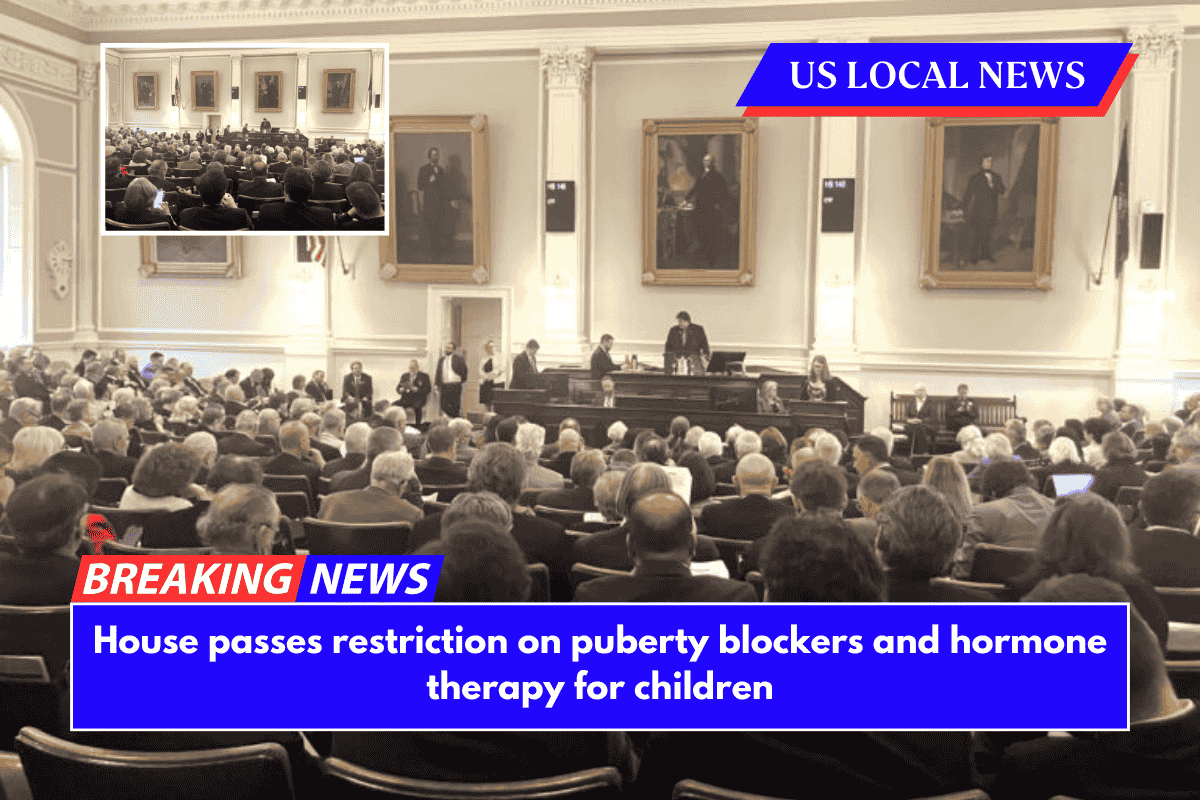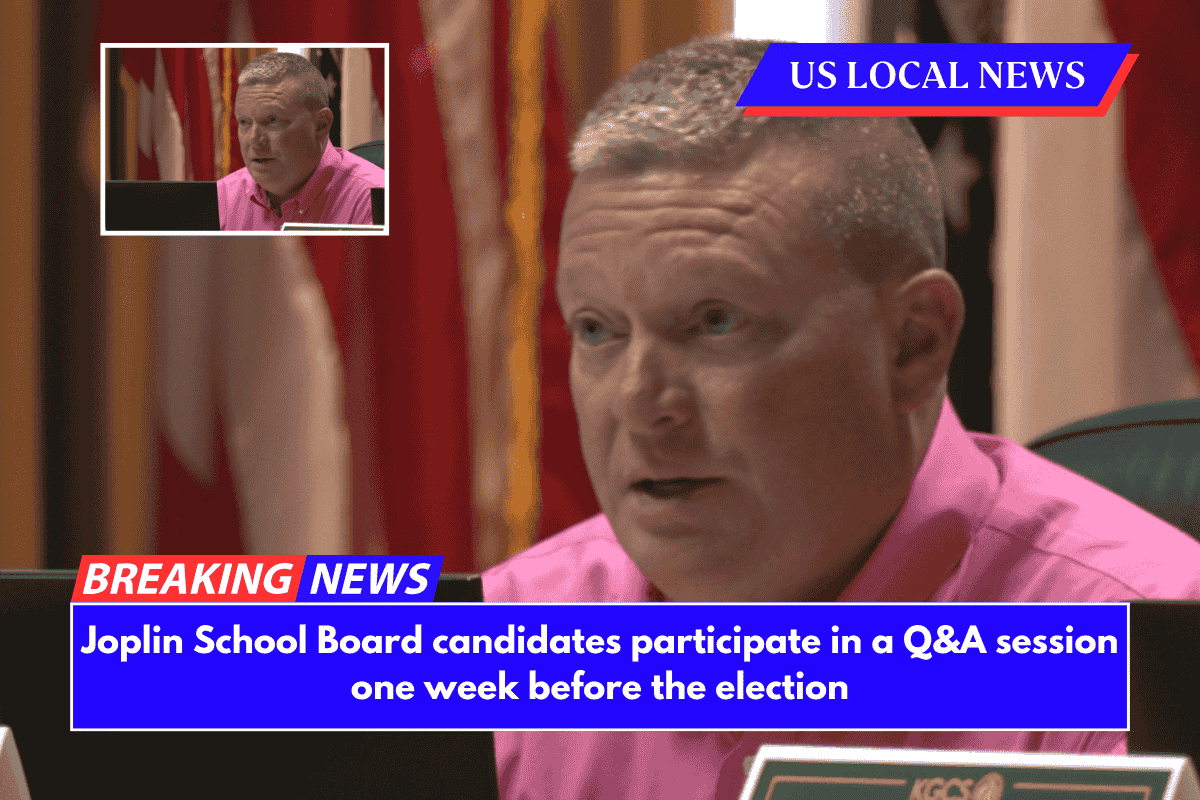Rep. Alice Wade, a Dover Democrat and transgender lawmaker, speaks out against House Bill 148, which would repeal some anti-discrimination protections for transgender people, on Thursday, March 20, 2025. On March 27, Wade also spoke out against HB 377. (Photo: Ethan DeWitt/New Hampshire Bulletin)
Transgender children and teenagers would be barred from receiving hormone therapy and puberty blockers under a bill passed by the New Hampshire House Thursday along nearly party lines.
House Bill 377 would prohibit medical procedures for people under the age of 18 “for the purpose of altering or attempting to alter the appearance of or affirming the minor’s perception of his or her gender or sex, if that perception is inconsistent with the minor’s biological sex.” Puberty-blocking and hormone medications are among the prohibited substances.
Democrats condemned the bill as discriminatory against transgender children, arguing that parents should be able to decide whether their children receive the treatments.
Opponents pointed out that the medications would be denied only to minors seeking to realize their gender identity, but would remain available for certain physical conditions, implying that the bill is aimed at transgender people.
The bill “unfairly targets a very small number of minors from getting the care that their parents and medical providers believe they need,” said Rep. Jessica LaMontagne, a Dover Democrat. “Despite what some proponents of this bill are telling you, these drugs are used safely and effectively for other reasons and their effects are reversible.”
Several Democratic representatives read testimonies from children who had received gender-affirming medication and improved their lives.
However, Republicans argued that the procedures are dangerous, difficult to reverse, and that too little is known about their side effects.
“These drugs are not perfectly safe,” said Derry Republican Rep. Erica Layon. “Anybody who says that is misleading parents, misleading kids, and misleading all of us.”
During Democrats’ speeches opposing the bill, many Republicans left the House chamber.
The act specifically prohibits “enabling a minor to identify with, or live as, a purported identity inconsistent with the minor’s biological sex and asserted identity.” Medical professionals who violate the proposed law could face a Class B felony charge, punishable by up to seven years in prison and a $4,000 fine.
The bill makes an exception for procedures for minors “with a medically verifiable disorder of sex development.” It also allows medical professionals who have already started a minor on such treatment before the bill goes into effect to continue the treatment if stopping it “would cause harm to the minor,” but the dosage must be tapered and reduced.
The bill would take effect on January 1, 2026.
HB 377 would expand upon a bill that passed in 2024 and that banned gender transition “bottom” surgeries for people under 18 in New Hampshire.
Research indicates that gender-affirming procedures are rare for minors; a 2025 study from Harvard analyzing insurance claims from 2018 to 2022 found that about 0.1 percent of adolescents between age 8 and 17 have received puberty blockers or hormone replacement therapy.
LaMontagne argued the bill prevented families from making the decision to support their child, and said the procedures usually follow years of therapy and discussion.
“This body just passed the parental bill of rights that includes the right to make health care decisions,” she said. “So I call on all of you that voted for the parental bill of rights: Do you believe that parents know best, or do you not?”
Rep. Alice Wade, a Dover Democrat who is transgender, said the therapies assisted her transition and saved her life during a suicidal episode. Wade transitioned after turning 18, but she believes that other teenagers benefit from the procedures.
“Imagine receiving life-saving care, then having someone with no understanding or experience try to rip that away from you because they think they know better,” Wade told the audience.
She added, “When members of this body say we need nuanced discussions and compromise, I agree. The problem is that my position is that I want access to health care, equal treatment, and the ability to mind my own business.
Rep. Lisa Mazur, a Republican from Goffstown, argued that children and families are unaware of the risks associated with the adoption process.
“Children cannot fully comprehend the lifelong consequences of altering their bodies with powerful medications,” Mazur told reporters. “… Gender dysphoria is real and painful, and those who suffer deserve compassion; however, rushing minors into irreversible medical interventions is not the solution.”
Layon went further: “Parents can’t give informed consent if they aren’t told of the risks of drugs and if they are told that the only alternative to treatment is as a dead child, because that is coercion and not consent.”
The bill passed 197-167, with two Democrats, Reps. Dale Girard of Claremont and Jonah Wheeler of Peterborough, voting in favor and four Republicans, Reps. Nicholas Bridle of Hampton, David Nagel of Gilmanton, John Styek of Salem, and Susan Vandecasteele of Salem, voting against. It travels next to the Senate.



















